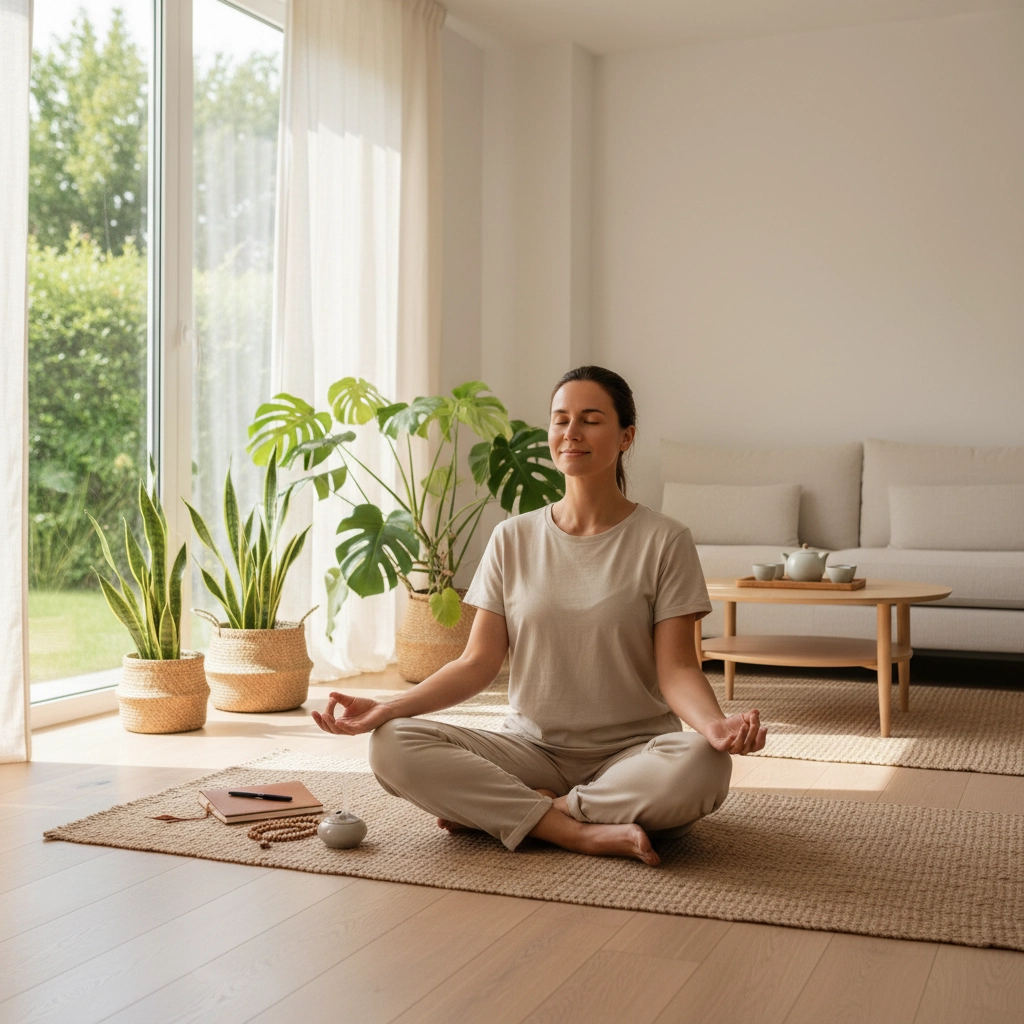Why Analog Wellness Will Change the Way You Think About Money (And Your Mental Health)
- Travis Moore
- Oct 20
- 5 min read
The constant ping of notifications, endless scrolling, and digital overwhelm are costing you more than just peace of mind: they're quietly draining your wallet too. Enter analog wellness, a growing movement that's helping people reclaim both their financial freedom and mental clarity by stepping back from our hyper-connected world.
Analog wellness isn't about rejecting technology entirely. It's about making conscious choices to engage with the physical world through direct, unmediated experiences. This shift toward tangible, real-world activities is transforming how people think about value, consumption, and what truly matters for long-term happiness.
The Hidden Financial Cost of Digital Living
Your smartphone addiction might be more expensive than you realize. The average person spends over $1,000 annually on app subscriptions, digital services, and tech upgrades they barely use. Analog wellness challenges this pattern by redefining luxury as uninterrupted time and undivided attention: two things money can't actually buy.
When you embrace analog wellness practices, you naturally reduce dependence on costly digital solutions. Instead of paying for meditation apps, you might practice mindfulness through nature walks. Rather than subscribing to multiple streaming services, you rediscover the joy of library books and community events. These aren't sacrifices: they're upgrades that cost less while delivering more meaningful experiences.

The lifestyle inherently reduces consumption of energy-intensive digital infrastructures. By choosing activities that connect you to your immediate environment: reading physical books, engaging in hands-on hobbies, spending time in nature: you automatically decrease spending on devices, subscriptions, and technology-dependent solutions.
Breaking Free from Hyper-Optimization Culture
Modern life pushes us toward constant optimization. There's an app for everything, a hack for every inefficiency, and a subscription service for every need. This hyper-optimization culture creates a peculiar financial trap: you spend money on tools promising efficiency, yet these purchases often increase anxiety rather than reducing it.
Analog activities resist this acceleration by their very nature. Tending plants, learning music, or having deep conversations cannot be rushed. This deliberate slowness serves as a powerful antidote to the anxiety and time-poverty that characterize modern life. When you embrace this slower pace, you discover that many purchases were attempts to "buy back" time or peace that you surrendered to digital demands in the first place.
The mental shift is profound. Instead of measuring worth through digital achievements or productivity metrics, analog wellness positions presence and authentic connection as the most valuable commodities. This reframing naturally leads to better financial decisions because you're no longer trying to purchase solutions to problems that disappear when you live more intentionally.
The Psychology of Presence and Financial Peace
Analog wellness addresses three fundamental psychological needs that directly impact both mental health and financial decision-making: autonomy, competence, and relatedness. Understanding how these needs connect to your spending habits reveals why analog practices are so financially transformative.
Building Genuine Competence Activities like woodworking, sewing, or gardening build real skills through manual engagement. Unlike digital achievements that can disappear with a software update, these competencies become permanent parts of who you are. The confidence gained from creating something with your hands reduces the need to purchase identity or status through consumer goods.
Reclaiming Autonomy Choosing to read without phone distractions or visiting museums represents true autonomy: reclaiming control over your attention. This autonomy extends to financial choices, helping you resist impulse purchases driven by algorithmic manipulation or social media pressure.
Fostering Deep Relatedness Organizing local book clubs, community gardens, or neighborhood events creates profound connections that digital interactions typically fail to replicate. These relationships provide emotional fulfillment that reduces the tendency to fill social voids through retail therapy or expensive entertainment.

Practical Analog Wellness Strategies for Better Financial Health
Implementing analog wellness doesn't require dramatic lifestyle changes. Small shifts in daily habits can create significant improvements in both mental clarity and financial outcomes.
Morning Routines Without Screens Start your day with analog activities: journaling with pen and paper, stretching, or preparing breakfast mindfully. This practice reduces morning anxiety and helps you make more intentional choices throughout the day, including financial decisions.
Tech-Free Meals Eating without digital distractions improves digestion, enhances appreciation for food, and naturally leads to more mindful consumption patterns. You'll likely find yourself buying higher-quality ingredients and cooking more, which typically costs less than frequent restaurant visits or meal delivery services.
Analog Learning Replace online courses and digital tutorials with library books, in-person classes, or hands-on workshops. These alternatives often cost less while providing deeper learning and genuine social connections.
Physical Movement Trade expensive gym memberships and fitness apps for walking, hiking, or bodyweight exercises. Not only does this save money, but outdoor activities provide mental health benefits that indoor alternatives cannot match.
The Mental Health Dividend of Analog Living
Moving beyond temporary digital detoxes to permanent lifestyle recalibration addresses the root causes of digital saturation. A digital detox is a short break before returning to the same habits; analog wellness fundamentally reroutes daily life to prioritize tangible, real-world engagement.
This shift cultivates purpose and fulfillment derived from the process itself rather than external validation like likes or shares. The mental health benefits are substantial: reduced anxiety, greater sense of control, deeper relationships, and authentic accomplishment. These psychological improvements naturally lead to better financial decisions because you're no longer making purchases to fill voids created by digital disconnection.

The practice also builds resilience against consumer manipulation. When your self-worth comes from real-world accomplishments and genuine relationships rather than digital metrics, you become less susceptible to marketing messages designed to exploit insecurity or FOMO.
Building Long-Term Financial Resilience Through Analog Practices
The most transformative aspect of analog wellness for your finances is how it builds intuitive understanding of what truly matters. When you develop deeper relationships with your natural environment through activities like local park visits or learning about ecosystems, you create a sense of connection and stewardship that makes sustainable choices feel natural rather than restrictive.
By reconnecting with the tangible world: understanding where your food comes from, appreciating the spaces you inhabit, working with natural materials: you develop genuine appreciation that transcends consumerist impulses. This isn't about living like a hermit; it's about making conscious choices that align with your values rather than defaulting to digital solutions.
Creating Sustainable Spending Habits Analog wellness naturally encourages mindful consumption. When you're more present and less influenced by digital advertising, you make purchases based on actual needs rather than manufactured wants. This leads to buying fewer, higher-quality items that last longer and provide more satisfaction.
Developing Financial Mindfulness Just as analog wellness promotes presence in daily activities, it encourages mindful attention to financial habits. You become more aware of spending triggers, more intentional about purchases, and more satisfied with what you already have.
The Compound Effect of Analog Wellness
The benefits of analog wellness compound over time, creating a positive feedback loop between mental health and financial well-being. As you become more present and less anxious, you make better financial decisions. As your finances improve, you experience less stress and greater peace of mind.
This isn't about perfection or complete technology avoidance. It's about creating intentional boundaries that allow you to enjoy the benefits of modern technology without being controlled by it. The goal is to use technology as a tool rather than living as its servant.
For those ready to explore this approach, start small. Choose one area of your life for analog experimentation: perhaps your morning routine or evening wind-down. Notice how this change affects both your mental state and your spending patterns. The results might surprise you.
The path to financial freedom and mental wellness isn't found in the next app or digital solution. Sometimes, the most powerful changes come from stepping back, slowing down, and reconnecting with the analog world that's been waiting for your attention all along.
Comments